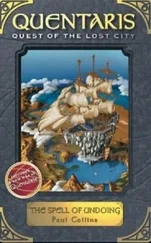Edward Vose - The Spell of Flanders
Здесь есть возможность читать онлайн «Edward Vose - The Spell of Flanders» — ознакомительный отрывок электронной книги совершенно бесплатно, а после прочтения отрывка купить полную версию. В некоторых случаях можно слушать аудио, скачать через торрент в формате fb2 и присутствует краткое содержание. Жанр: Путешествия и география, foreign_antique, foreign_prose, на английском языке. Описание произведения, (предисловие) а так же отзывы посетителей доступны на портале библиотеки ЛибКат.
- Название:The Spell of Flanders
- Автор:
- Жанр:
- Год:неизвестен
- ISBN:нет данных
- Рейтинг книги:5 / 5. Голосов: 1
-
Избранное:Добавить в избранное
- Отзывы:
-
Ваша оценка:
- 100
- 1
- 2
- 3
- 4
- 5
The Spell of Flanders: краткое содержание, описание и аннотация
Предлагаем к чтению аннотацию, описание, краткое содержание или предисловие (зависит от того, что написал сам автор книги «The Spell of Flanders»). Если вы не нашли необходимую информацию о книге — напишите в комментариях, мы постараемся отыскать её.
The Spell of Flanders — читать онлайн ознакомительный отрывок
Ниже представлен текст книги, разбитый по страницам. Система сохранения места последней прочитанной страницы, позволяет с удобством читать онлайн бесплатно книгу «The Spell of Flanders», без необходимости каждый раз заново искать на чём Вы остановились. Поставьте закладку, и сможете в любой момент перейти на страницу, на которой закончили чтение.
Интервал:
Закладка:
In the early annals of Bruges no story is more dramatic than that of the murder of Charles the Good. It is, in fact, the theme of the great Flemish novelist Hendrick Conscience’s most famous book, De Kerels van Vlaanderen , and has been told by several contemporary chroniclers. When Charles became Count of Flanders the feudal system was slowly displacing the anarchy that had resulted from the breakdown of all centralised government as the Norsemen swept over northern Europe. Charles was an ardent believer in the new order, but was opposed in his policy of building up a strong feudal state by the Karls, a class of free landholders of Saxon descent, who stubbornly refused to swear allegiance to any feudal over-lord. The greatest of these was the house of Erembald. Desiderious Hacket, the head of the family, was Châtelain of Bruges, ranking next to the Count himself; while his brother Bertulph was Provost of St. Donatian, the principal ecclesiastical position in the County, and chancellor of the Count. The head of the feudal lords was Tancmar, Lord of Straten. Between the powerful houses of Erembald and Straten there was a deadly feud, which culminated in a challenge to mortal combat delivered to Walter, a nephew of Tancmar, by Richard de Raeske, a baron allied by marriage to the house of Erembald.
To the amazement of all Flanders the challenge, delivered in the presence of Count Charles and all his court, was refused. Walter, whom the historians call “the Winged Lie,” proclaimed that he would fight only with a free man, and that the Lord of Raeske, by wedding a serf, had become a serf himself. This was in accordance with a law recently promulgated by Charles, but the house of Erembald, perceiving that its very existence was threatened by the charge, fiercely repelled the accusation and was supported not only by all of the Karls, but by most of the feudal nobility as well—the latter no doubt fearing lest one of their own houses might be attainted in a similar manner at any moment.
The country was plunged into what was virtually civil war, when Charles was suddenly summoned by his feudal over-lord, the King of France, to come to his aid at Clermont. On his return, assured of the King’s powerful support, Charles undoubtedly meditated the complete overthrow of the Erembalds, whom he had steadfastly claimed as his vassals since “the Winged Lie” had denounced them as serfs. He arrived at Bruges late in the evening, and early the following day, March 1, 1127, repaired to St. Donatian to hear mass. It was a foggy morning and the Count went almost unattended. Hardly had he knelt before the altar when a party of followers of the attainted house of Erembald swarmed into the church and he was struck down before he had time to rise, much less to defend himself.
If, in his lifetime, the Count was a dangerous foe to the Erembalds, in his death he proved to be far more deadly. As his body lay on the stone floor of the great church, clad in the crimson robe the chroniclers so often allude to, and surrounded with flaming torches, the heads of the house hastily consulted as to what was to be done with it. To inter the body at Bruges would be to risk an outbreak of popular passion at the murder, and it was decided to secretly convey it away. This plan was rudely frustrated by a mob of citizens who forcibly prevented the removal of the body, which was therefore laid to rest with imposing ceremonies in the very church where the Count had been assassinated.
Meanwhile the story of the murder spread far and wide, and, in a few days, a huge host was marching on Bruges from every part of Flanders. For a time the burghers stood by the Châtelain and the Provost, but when the city was entered by stratagem and the Erembalds driven back into the Bourg the mass of the citizens went over to the side of the avengers. After a short defence the Bourg in turn was captured—its defenders failing to guard one small gate by which their enemies entered unopposed—and the remnant of the Erembalds fled into the very church that had been defiled by their kinsmen’s crime, St. Donatian. Here, for a time, they were left in peace while the victors pillaged the rich palaces in the ancient Bourg.
The day before the capture of the Bourg Bertulph, the Provost managed to escape and fled to a little village near Ypres. Here, after remaining in hiding for some three weeks, he was captured. The next morning he was brought to Ypres, walking on foot all the way, although a horse was offered him. That he was going to his death he well knew, and asked for a priest to whom he confessed. The old man—who had been “a soft, luxurious prelate,” proud and haughty in his days of power—made his last journey like a martyr. As the prisoner and his captors neared the gates of the city a great throng came forth to meet them, beating the Provost with their staves and fists and pelting him with the heads of fish. Arrived in the market-place he stood amid the huge jeering throng, not one of whom looked with pity on him, and there, for his greater shame, he was fastened naked to a cross like a common thief. On his refusing in a steadfast voice to reveal the names of any of those implicated in the Count’s murder, “those who were assembled in the market-place to sell fish tore his flesh with their iron hooks, and beat him with rods, and thus they put an end to his days.”
The news of this tragedy was brought to the little band still being besieged at St. Donatian and caused great grief and terror. Of the very considerable army of Erembalds and their partisans who had taken refuge in the Bourg only thirty now remained, most having been killed, while some no doubt had escaped. King Louis, with a host of French knights, had joined the men of Flanders in the attack and it was seen that further resistance was hopeless. The only terms were instant surrender or instant death, and as they looked across the country from the church tower they could see no hope of succour and surrendered. After keeping them prisoners for a fortnight, Louis directed that all save one, who was of somewhat nobler lineage than the rest, should be flung from the tower of the now thrice historic St. Donatian. This sentence was duly carried out. The cruel soldiers told the condemned that they were about to receive a proof of the King’s mercy and they remained ignorant of their terrible fate until, one after another, they stood on the lofty tower overlooking the city for a brief moment and were then dashed down headlong to the jagged pavement below. The bodies were denied Christian burial and thrown into a marsh outside of the city, and it is related that for many years thereafter “no man after nightfall would willingly pass that way.”
The house of Erembald was well-nigh annihilated during this short, but sanguinary, war. The sole survivor of the band captured in the church was beheaded by King Louis as soon as he crossed the French frontier, while most of the great names in the family were heard of in Flanders no more—some having perished in battle, others in exile. Only one, Hacket the Châtelain, returned after the cry for vengeance had died down, was placed on trial for the murder, proved his innocence, and eventually recovered much of his former power and wealth. The charge of serfdom was never raised again, and his descendants for many generations stood high in the rolls of the Flemish nobility.
The church of St. Donatian no longer stands, having been destroyed during the French Revolution. In the small museum of antiquities in the Halles adjacent to the Belfry we were shown some stone railings, carved in imitation of rustic woodwork, that the concierge assured us had come from the ruins of the famous church. From a painting made in 1710 the student can obtain a fair idea of the appearance of the structure, which can hardly be said to have been imposing externally. It stood opposite the Hotel de Ville, and the statue of Van Eyck in the centre of the little shaded square is said to mark the spot where Charles the Good fell at the hands of his assassins. The stones with which the Cathedral was built were carried away, and some of them were used to build a château a short distance outside of the city. According to the peasants in the neighbourhood, ill-luck has always followed those who lived there. If so, the spirit of the murdered Count would seem to have been as dangerous in the nineteenth century as it was in the twelfth.
Читать дальшеИнтервал:
Закладка:
Похожие книги на «The Spell of Flanders»
Представляем Вашему вниманию похожие книги на «The Spell of Flanders» списком для выбора. Мы отобрали схожую по названию и смыслу литературу в надежде предоставить читателям больше вариантов отыскать новые, интересные, ещё непрочитанные произведения.
Обсуждение, отзывы о книге «The Spell of Flanders» и просто собственные мнения читателей. Оставьте ваши комментарии, напишите, что Вы думаете о произведении, его смысле или главных героях. Укажите что конкретно понравилось, а что нет, и почему Вы так считаете.












